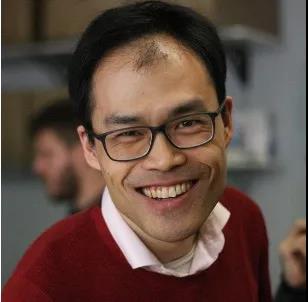内容来源:OpenScience
Growing up in Science
从事科学研究从来都不是一件容易的事情,每个看似光鲜亮丽的科学家背后都可能有无数的坎坷与挫折。那么如果面对这样的挑战,并在此过程中逐渐成长呢?
本期OpenTalks我们邀请到了Growing up in science (www.growingupinscience.org)的发起人马伟基博士(注:你可能更熟悉他的拼音名字,Wei Ji Ma),来分享他背后的“非官方故事”(见文末),以及他缘何发起了Growing up in science这一运动。
需要隆重强调的是,尽管Wei Ji身为华裔,但这是他第一次面对广大华人群体来分享自己的故事。精彩一定不容错过!
本次报告语言为英文。
报告信息
题目:Growing up in science
报告语言:英文
分享嘉宾:马伟基 博士,美国纽约大学(New York University)心理学系教授

马伟基 博士(Wei ji Ma; Whee Ky Ma)是一名计算认知科学家(computational cognitive scientist)。博士毕业于荷兰格罗宁根大学(University of Groningen),现为美国纽约大学(New York University)心理学系教授。主要使用计算建模与认知神经科学的方法,研究知觉决策、多通道整合、视觉工作记忆、元认知等科学问题。2021年获得由认知科学协会(Cognitive Science Society)颁发的Jeffrey L. Elman奖,以表彰其科学领域的卓越成就和在社区建设方面的杰出贡献(参见新浪的新闻报道:https://www.sohu.com/a/446604437_610300)
摘要
Growing up in Science is a worldwide set of conversations about the lived experiences of scientists. In 2014, it was started by Wei Ji Ma as a monthly mentorship series at New York University. In a typical event, one faculty member shares their life story, with a focus on struggles, failures, doubts, detours, and weaknesses. Common topics include dealing with expectations, impostor complex, procrastination, the role of luck, dealing with rejection, and conflicts with advisors, but these topics are always embedded in the speaker’s broader narrative. We also feature speakers who have left academia. In the global online series, we pay particular attention to underrepresented voices in academia. We also hold panel discussions around themes such as mentorship, anti-racism, and work-life balance. More information: www.growingupinscience.org
时间
北京时间[GMT+8] 10月21日(周四) 20:00
欧洲中部时间[CEST] 10月21日(周四)14:00
美国东部时间[EDT] 10月21日(周四) 08:00
zoom信息
Meeting ID: 913 940 10836
https://auckland.zoom.us/j/91394010836
报告流程
报告50分钟,交流时间30-40分钟
主持人
张磊(博士)
维也纳大学心理学院博士后
Wei Ji Ma’s official story (Weiji的官方故事)
Weiji is a computational cognitive scientist. He received his Ph.D. in Physics from the University of Groningen, the Netherlands. He went on to do postdocs in computational neuroscience with Christof Koch at Caltech and with Alexandre Pouget at the University of Rochester. He became Assistant Professor of Neuroscience at Baylor College of Medicine in 2008 and moved to New York University in 2013, where he is now Professor of Neural Science and Psychology. His research has covered many areas, including visual decision-making, multisensory perception, visual working memory, metacognition, thinking ahead, and mindsets.
Weiji’s unofficial story (Weiji的非官方故事)
Weiji is a second-generation Dutch Chinese who grew up with a single mom and a mixed cultural background. Weiji had a bizarre childhood, graduating from high school at age 14 and from college at 17, along the way picking up media appearances, deficits in social skills, and an inflated self-image. His confidence came crashing down in his PhD, which was initially misguided (bad advisor) and eventually just too hard (string theory). He was leaning heavily on a fellow grad student and his PhD never felt like his own. Weiji was also easily distracted, spending more time being active in organizations and playing online chess than doing research. Making it to faculty seemed like a distant dream. He considered alternative careers, including business consulting, but decided to give science one more chance. Starting as a postdoc offered new opportunities for delusions of grandeur: he thought he would solve consciousness using statistical physics. Back on Earth, Weiji published only one book chapter with Christof Koch, and in 2004, Christof had no choice but to kick him out of his lab. Only in his second postdoc, with a more hands-on advisor, did he start to get his act together, but this was also a time when, working besides a highly capable fellow postdoc, impostor complex hit hard. Weiji got his faculty job thanks to just enough people seeing promise in the absence of accomplishments. His procrastination is still alive and kicking to this day, but since his students and postdocs now do the actual work, he can get away with it. Weiji can talk endlessly about academia having too few incentives for community organizing, outreach, and activism.
组织团队(按名字首字母倒序排列)
OpenScience学术策划小组
张磊 (博士), University of Vienna, Austria
张晗(博士), A*STAR, Singapore
楊毓芳(博士), Universität Würzburg, Germany
杨金骉, MPI Psycholinguistics, the Netherlands
王鑫迪(博士), 北京慧脑云
王庆(博士), MNI, Canada
金海洋(博士), NYU Abu Dhabi, UAE
胡传鹏(博士), 南京师范大学
耿海洋(博士), HongKong University
金淑娴, Vrije Universiteit Amsterdam, the Netherlands
高梦宇(博士), University of Utah, USA
NeuroChat团队
张文昊(University of Chicago, USA)
张洳源(上海交通大学心理与行为科学研究院)
张磊(University of Vienna, AUT)
应浩江(苏州大学心理学系)
徐婷(Child Mind Institute, USA)
王鑫迪(北京慧脑云)
滕相斌(MPI for Human Development, DEU)
鲁彬(中国科学院心理研究所)
孔祥祯(浙江大学心理与行为科学系)
胡传鹏(南京师范大学心理学院)
邸新(New Jersey Institute of Technology, USA)